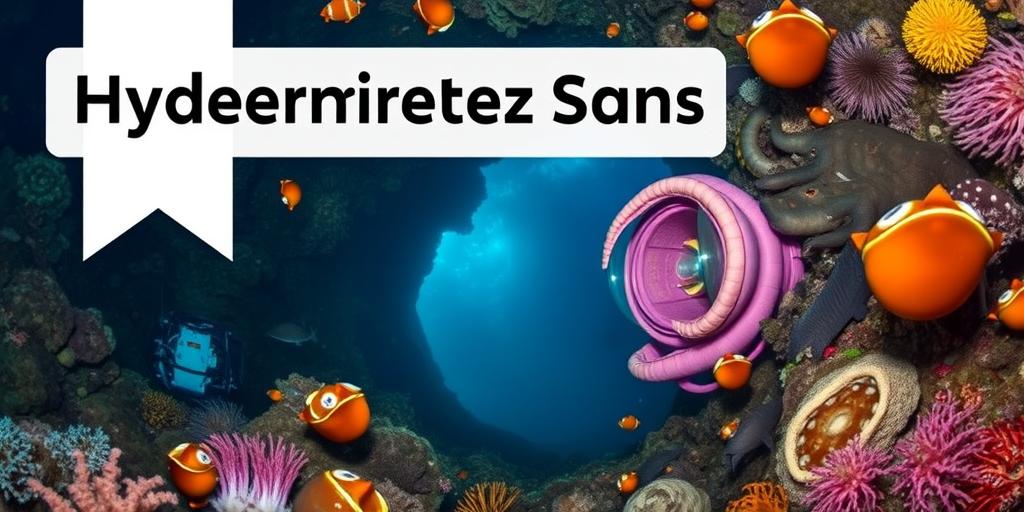Exploring the Deep Sea: Scientific Expeditions
The deep sea, a realm of perpetual darkness and extreme pressure, remains one of Earth's last great frontiers. Scientific expeditions are crucial in unraveling the mysteries of this environment. This post explores the significance, methods, and discoveries of these expeditions.
Why Explore the Deep Sea?
The deep sea is more than just a dark abyss. It's a complex ecosystem teeming with unique life forms and geological features. Expeditions help us:
- Understand Biodiversity: Discover new species and understand how life adapts to extreme conditions.
- Study Geological Processes: Investigate hydrothermal vents, seamounts, and underwater volcanoes.
- Assess Environmental Impact: Monitor the effects of pollution, climate change, and deep-sea mining.
- Find Resources: Identify potential sources of medicines, minerals, and other valuable resources.
Methods of Deep-Sea Exploration
Exploring the deep sea requires specialized equipment and techniques:
- Remotely Operated Vehicles (ROVs): These are unmanned submarines controlled from the surface, equipped with cameras, sensors, and robotic arms.
- Autonomous Underwater Vehicles (AUVs): These operate independently, following pre-programmed routes to map the seafloor and collect data.
- Submersibles: Manned vehicles like the Alvin allow scientists to directly observe and interact with the deep-sea environment.
- Hydroacoustic Surveys: Using sound waves to map the seafloor and detect underwater features.
- Deep-Sea Observatories: Permanent installations that continuously monitor environmental conditions and biological activity.
Notable Deep-Sea Expeditions
Several expeditions have significantly contributed to our understanding of the deep sea:
- The Challenger Expedition (1872-1876): The first global marine research expedition, which laid the foundation for oceanography.
- The Titanic Expedition (1985): Led by Robert Ballard, this expedition not only discovered the wreck of the Titanic but also pioneered the use of deep-sea ROVs.
- The Census of Marine Life (2000-2010): A global effort to assess and record the diversity, distribution, and abundance of marine life.
- The Okeanos Explorer Program (Ongoing): NOAA's deep-sea exploration program, using advanced technologies to explore previously unvisited areas.
Key Discoveries and Findings
Deep-sea expeditions have led to numerous groundbreaking discoveries:
- Hydrothermal Vents: Discovered in the 1970s, these chemosynthetic ecosystems support life without sunlight.
- New Species: Countless new species of fish, invertebrates, and microbes have been identified, showcasing the vast biodiversity of the deep sea.
- Unique Adaptations: Organisms have evolved remarkable adaptations to survive extreme pressure, darkness, and scarcity of food.
- Geological Features: Mapping of seamounts, trenches, and underwater volcanoes has revealed the dynamic nature of the Earth's crust.
Challenges and Future Directions
Despite the progress, deep-sea exploration faces challenges:
- High Costs: Developing and operating deep-sea equipment is expensive.
- Technological Limitations: Exploring the deepest parts of the ocean requires advanced technologies that are still under development.
- Environmental Concerns: Balancing exploration with the need to protect fragile deep-sea ecosystems.
Future expeditions will likely focus on:
- Developing more advanced ROVs and AUVs: To explore deeper and more remote areas.
- Using AI and machine learning: To analyze the vast amounts of data collected.
- Improving our understanding of deep-sea ecosystems: To better manage and protect these environments.
Conclusion
Scientific expeditions are essential for understanding and protecting the deep sea. By continuing to explore this final frontier, we can unlock new knowledge about our planet and its life forms. As technology advances, future expeditions promise even more exciting discoveries.









